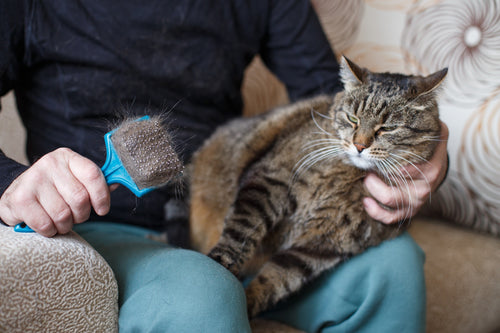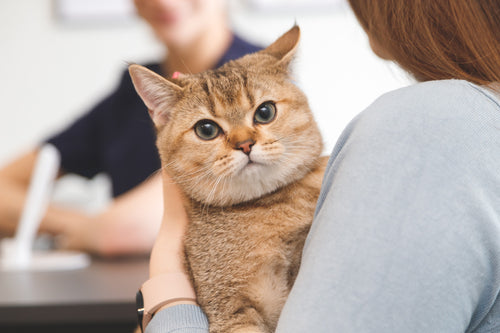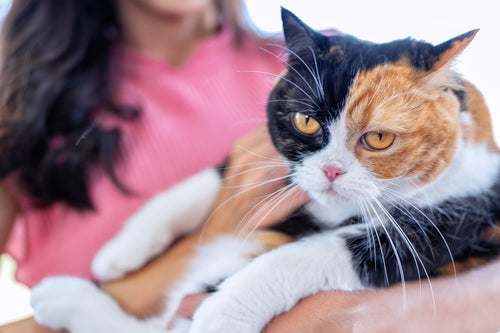Your feline companion is more than a pet; they're a part of the family. Just like any family member, your cat's health is of the utmost importance. With numerous health supplements saturating the pet market, it's natural to wonder if your whiskered friend could use a boost.
So, do cats even need health supplements?
This comprehensive post will not only answer that question but also guide you on the best ways to keep your cat healthy and happy.
Understanding Cat Nutrition
Before considering the addition of supplements to your cat's diet, it's crucial to understand what constitutes good nutrition for cats. Cats are obligate carnivores, meaning meat makes up a significant portion of their essential dietary needs.
When choosing commercial pet food; the key nutrients to focus on include proteins, fats, vitamins, and minerals. Abiding by your cat's natural dietary requirements and choosing quality cat food will significantly impact their health and well-being.
Essential Nutrients for Cats
Proteins are vital to the body for tissue growth and repair, as well as hormone and enzyme production. Fats, particularly omega-3 and omega-6 fatty acids, play a role in skin and coat health.
Cats also have strict dietary needs for vitamins such as A, D, vitamin E, K, and B-complex vitamins. Minerals like calcium, phosphorus, magnesium, and taurine are crucial for various bodily functions.
Common Deficiencies in Cat Diets
Imbalances in a cat's diet can lead to a vitamin deficiency. This is because a lot of commercially available cat foods don’t surpass basic nutritional requirements. In other words, they don’t go above and beyond. This isn’t an issue in and of itself, but it can become an issue if your cat has other health-defying factors such as age and health (which we’ll get into below).
A common issue is the lack of taurine, an amino acid necessary for heart and eye health. A taurine deficiency can result in heart conditions and vision impairments.
Another frequent shortfall is in omega-3 fatty acid, eicosapentaenoic acid (EPA), and docosahexaenoic acid (DHA), which help prevent and manage heart disease.
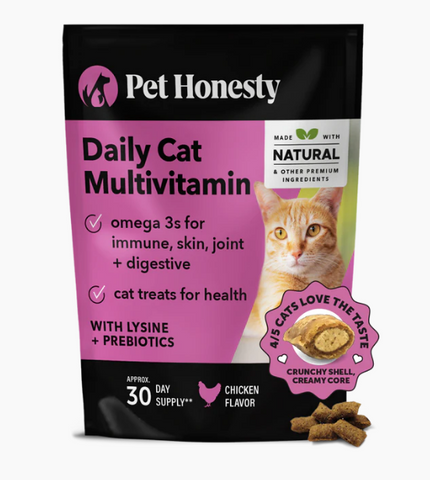
Factors Influencing the Need for Supplements
There are several factors to consider when evaluating if your cat could benefit from nutritional supplements. Understanding these factors can guide your decision-making process and ensure that your cat's health is appropriately managed.
Age and Life Stage Considerations
Kittens, adult cats, and seniors have varying nutritional needs. Kittens need extra nourishment for their rapid growth and development. Additionally, senior cats may benefit from some supplements that aid in joint health and cognitive function. On the other hand, pregnant and nursing cats also have increased nutritional and energy demands.
Health Conditions That May Require Supplements
Certain medical conditions, like chronic kidney disease or digestive disorders, might necessitate supplements. Conditions that prevent the proper absorption of nutrients can lead to deficiencies, which health supplements can help address.
Diet and Lifestyle Factors
The type of diet your cat consumes, as well as their lifestyle habits, can also impact the need for supplements. For example, indoor cats may require additional vitamin D due to limited sun exposure.
Furthermore, if your cat has a restricted or specialized diet, they may not be receiving all the necessary nutrients. In these cases, adding supplements can help bridge the gap and maintain their overall health.
Environmental Factors
Environmental factors can also play a role in determining if your cat needs supplements. For instance, living in an area with high levels of pollution or exposure to toxins can increase the need for antioxidants and other immune-boosting supplements.
Similarly, extreme weather conditions may require additional nutrients to support your cat's immune system.
Popular Health Supplements for Cats
While the options are vast, some health supplements have gained popularity due to their proven benefits for feline health.
Omega-3 Fatty Acids
Omega-3 fatty acids are known for their anti-inflammatory properties and can benefit various health issues, including skin allergies and heart health problems. Omega-3 fatty acids can be found in fish oils (such as salmon oil) and can help aid in healthy skin and brain health, making them particularly beneficial for senior cats.
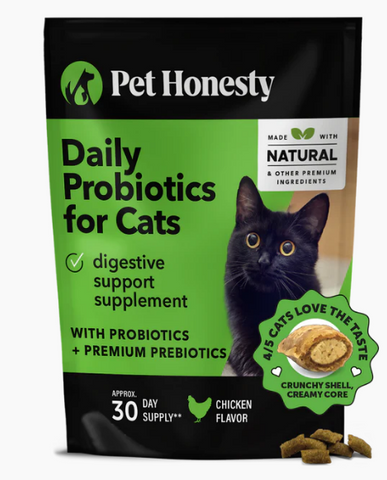
Probiotics
Probiotics are live bacteria and yeasts that are good for your cat's digestive system. They help maintain the balance of "good" bacteria in the gut and can aid in the treatment of diarrhea or the prevention of gastrointestinal issues.
Multivitamins
A well-formulated multivitamin can serve as a nutritional "safety net," especially for cats with restrictive or imbalanced diets. However, it's essential to choose a supplement that is specifically designed for cats.
The Importance of Choosing Cat-Specific Supplements
Cat-specific supplements are specially formulated to meet the unique nutritional needs of felines. These supplements consider factors such as age, life stage, and common health conditions in cats to provide a targeted approach to using cat vitamins and supplementing their diet.
This all makes sure that your cat gets the specific nutrients it needs without risking potential imbalances or adverse reactions from taking supplements designed for other animals.
Additionally, cat-specific supplements often come in forms and flavors that are more appealing to cats, making it easier for you to administer them. All in all, they ensure your furry friend gets the necessary nutrients they need for optimal health… without the fight.
Benefits of Health Supplements for Cats
The potential benefits of incorporating health supplements into your cat's diet are numerous and can significantly enhance their quality of life. Below are just some of the benefits of supplementing your cat’s diet.
Improved Coat Health
Supplements like omega-3 fatty acids can lead to a shinier, healthier coat and healthy skin by helping to reduce inflammation and maintain skin moisture.
Digestive Support
Probiotics can aid in the digestion of food and absorption of nutrients, promoting a healthy gut flora balance. This can be especially beneficial for cats with digestive disorders or chronic conditions.
Better Joint Health
Supplements targeting joint health, such as glucosamine and chondroitin, can help alleviate joint discomfort in cats with arthritis or other joint issues.
Overall Wellness and Longevity
By addressing potential nutrient deficiencies and supporting overall health, supplements can contribute to a longer, healthier life for your furry friend.
Considerations Before Giving Supplements
While the intention behind giving your cat supplements is to improve their health, it's important to do so responsibly.
Consultation with a Veterinarian
Always consult with your veterinarian before starting your cat on any new supplement. They can provide expert advice tailored to your cat's individual needs and can guide you toward the most suitable products.
Potential Risks and Side Effects
Just as with human supplements, there can be risks associated with cat health supplements. Overdosing on certain vitamins or minerals can be harmful, and interactions with other supplements or medications are possible. It's crucial to follow dosage instructions carefully and be aware of potential side effects.
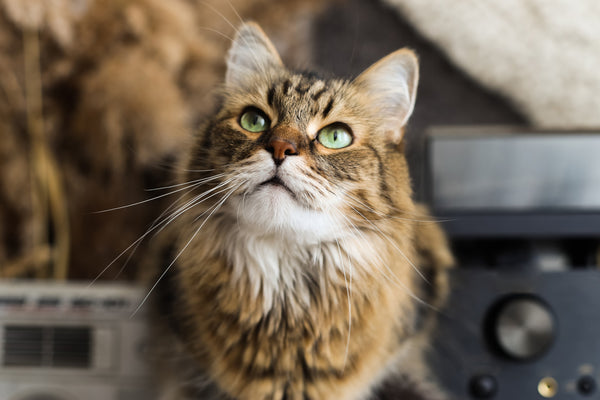
FAQs
To further inform your decision on whether or not to give your cat health supplements, here are answers to some frequently asked questions.
Are health supplements necessary for my cat?
If your cat is getting a well-balanced diet, they may not require additional supplements. However, certain factors like age and medical conditions can increase the need for supplementation and it’s never a bad idea.
Can I give my cat human supplements?
No, it's not recommended to give your cat supplements intended for humans. Cats have different nutritional needs, and some human supplements may contain ingredients that are harmful to them.
Can my indoor cat benefit from health supplements?
Yes, even indoor cats may benefit from some health supplements, depending on their individual needs and diet. Indoor cats may have different requirements for certain nutrients, such as omega-3 fatty acids, b vitamins, or vitamin D.
Are there any natural alternatives to supplements?
Some pet owners prefer to opt for natural options instead of supplements. Examples can include incorporating fresh whole foods into your cat's diet, like small amounts of cooked meat or vegetables. Consult with your veterinarian before making any significant dietary changes.
What should I do if my cat negatively reacts to a supplement?
If your cat has an adverse reaction to a supplement, stop giving it immediately and consult with your veterinarian. They can advise on how to treat the reaction and whether or not it is safe for your cat to continue taking the supplement.
Can kittens benefit from health supplements?
Kittens have different nutritional needs than adult cats and should not be given the same vitamins and supplements Consult with a veterinarian before giving any supplements to kittens, as they may require specific formulations or dosages.
Are there specific supplements recommended for senior cats?
Yes, senior cats may benefit from certain supplements that cater to their age-related needs, such as joint support or cognitive function. Consult with your veterinarian to determine the best options for your senior cat.
Can supplements help with my cat's urinary health?
Yes, certain supplements may be beneficial for cats with urinary issues, such as cranberry extract or probiotics that support urinary tract health.
Conclusion
Caring for your beloved feline friend involves a comprehensive approach to health management. While health supplements can be beneficial under the right circumstances, they're not a one-size-fits-all solution. Understanding your cat's nutritional needs, considering their life stage, and consulting with your veterinarian are the pillars of a healthy supplement regimen.
In the same way, we'd strive to make informed decisions about our own health, we must afford our cats the same diligence. In doing so, we ensure their lives are filled with health, happiness, and an abundance of purr-sonal care.



